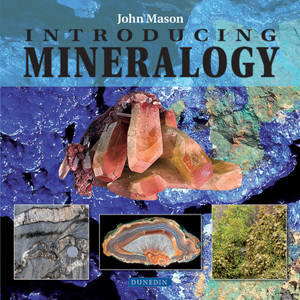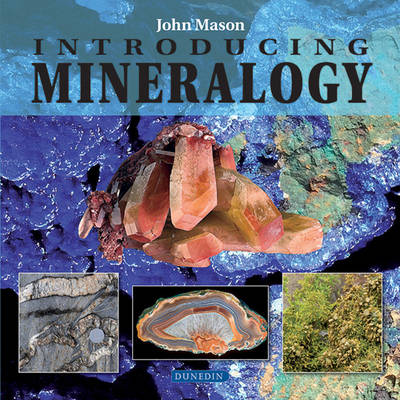
- Afhalen na 1 uur in een winkel met voorraad
- Gratis thuislevering in België vanaf € 30
- Ruim aanbod met 7 miljoen producten
- Afhalen na 1 uur in een winkel met voorraad
- Gratis thuislevering in België vanaf € 30
- Ruim aanbod met 7 miljoen producten
Omschrijving
People have been fascinated by minerals since prehistory. The attractions of minerals lie in their colours, their beautiful crystals and the discoveries of their uses and the metals that can be obtained from them. Minerals receive attention from a wide variety of people: mining executives, collectors, prospectors and scientists unravelling their molecular structure and origins. But, for someone new to mineralogy, the subject can appear to be overwhelmingly complex.
In Introducing Mineralogy John Mason considers the essence of mineralogy in a clear and logical manner. The book begins with the basic chemistry of minerals and the way in which the mineral kingdom is classified. It then considers mineral occurrences, both typical, such as the minerals that largely make up common rocks like granite, and atypical, such as concentrations of rare metals in ore-deposits. The ways in which minerals are studied using microscopes and the importance of careful observation and interpretation are discussed and the topics of mineral collecting and related issues are addressed. The final chapters explore the uses of minerals, both industrial and scientific, and take a look at environmental issues associated with mineral extraction and usage
Lavishly illustrated in colour and complete with a glossary, the book is aimed at students embarking on courses in the Earth Sciences and at the amateur collector who wants to find out more about the colourful rocks they may find when out walking.
Specificaties
Betrokkenen
- Auteur(s):
- Uitgeverij:
Inhoud
- Aantal bladzijden:
- 128
- Taal:
- Engels
- Reeks:
Eigenschappen
- Productcode (EAN):
- 9781780460284
- Verschijningsdatum:
- 27/11/2014
- Uitvoering:
- Paperback
- Formaat:
- Trade paperback (VS)
- Afmetingen:
- 218 mm x 218 mm
- Gewicht:
- 376 g

Alleen bij Standaard Boekhandel
Beoordelingen
We publiceren alleen reviews die voldoen aan de voorwaarden voor reviews. Bekijk onze voorwaarden voor reviews.











